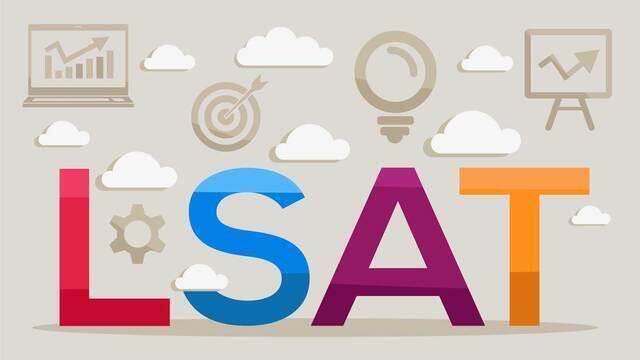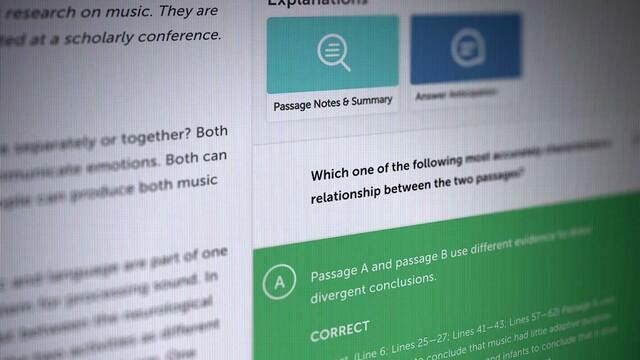“Logic Games … this here ol’ section jus’ lived a life an’ just died out of it. I don’t know whether it was good or bad, but that don’t matter much. It was once on the LSAT, an’ that’s what matters. An' now it’s not, an' that don't matter.”
…
Oh, sorry, you caught us practicing our eulogy for Logic Games. That’s a little embarrassing. Tell us, though, too derivative? Yeah? Anyway, we have time to work on it. Let’s focus on what matters today: the announcement LSAC just sent out informing future law students, law schools, and LSAT instructors that LSAC will remove the Logic Games section from the LSAT starting in August 2024.
For those of us who have been in the LSAT-prep game for a minute, this announcement was long-coming, perhaps even long-dreaded. For those of you who just started your LSAT study journey, this news might come as a shock. Either way, let’s break down this announcement together and spill a bit of digital ink in remembrance of the Logic Games section.
So, the Logic Games section is really going away?
Yep. The August 2024 LSAT will be the first LSAT without a Logic Games section (technically known as the “Analytical Reasoning” section) since 1991. All the LSATs between now and August 2024 will feature the normal line-up: one scored Logical Reasoning, one scored Reading Comp, one scored Logic Games, and one unscored “experimental” section.
Does that mean the LSAT will be one section shorter?!
Unfortunately, no. LSAC will replace the Logic Games section with a second Logical Reasoning section. So, starting in August 2024, the LSAT will consist of two scored Logical Reasonings, one scored Reading Comp, and one unscored “experimental” section.
But why?
In 2019, LSAC reached a legal settlement with test-takers who were blind and visually impaired. These test-takers had sued LSAC, arguing that LSAC's available accommodations in the Logic Games section don't adequately address their needs as blind and visually impaired test-takers.
Most test-takers find the Logic Games section much more manageable when they can write their work on scratch paper. For obvious reasons, such visual aids are significantly less useful to test-takers who are blind or visually impaired. In their lawsuit, the plaintiffs requested that LSAC remove the Logic Games section altogether.
Following the 2019 settlement, the plaintiffs' attorneys announced that LSAC promised to remove the Logic Games section as a requirement for test-takers within five years. Flash forward (almost) five years, and here we are.
Wait, wasn’t LSAC testing out alternative sections?
Yeah. In fact, after the 2019 settlement, LSAC only announced that it would "research alternative ways to assess analytical reasoning." And research they did.
On the June 2022 LSAT, some test-takers received an unexpected message on the load screen before beginning the final section of the test. This message told these test-takers that the last section was the unscored experimental section. This last section consisted of new variations of Logic Games questions. According to most reports, these games were shorter and simpler than typical logic games. Interspersed among these pseudo-LG questions were survey questions, which asked test-takers whether they used scratch paper to complete the questions. People in the LSAT-prep space soon deduced that LSAC was testing out a new, more accommodating version of the Logic Games section.
Later that year, LSAC held pilot studies testing another alternative to the Logic Game section. These studies were open to the public, and most subjects encountered questions that tested their conditional and proportional reasoning — which was a bit different than the spatial reasoning tested on a normal Logic Games section.
Obviously, the new version of the LSAT won’t be using either of these alternative sections. So, maybe the sections didn’t pan out for whatever reason. Or, maybe LSAC is waiting to unveil one of the alternative sections until it’s had the opportunity to build up many examples of the new alternative section, helping test-takers prepare for a newer, more accommodating version of the Logic Games section.
But starting with the August 2024 exam — and until LSAC announces any other changes to the test — a second Logical Reasoning will replace the Logic Games section. According to LSAC’s announcement, “the best way to continue to assess students’ reasoning skills is through the addition of a second logical reasoning section to replace the existing logic games section.” LSAC also noted that, “Because students are already very familiar with the LR section of the LSAT, adding a second LR section at the beginning of a new testing year will have minimal impact on test takers who have already begun to prepare for the LSAT.”
Will this make the test easier? Or harder?!
According to LSAC, no. In the part of the announcement that was so-clearly written to placate law schools, LSAC claims that its research shows that substituting a second Logical Reasoning section for the Logic Games section doesn’t meaningfully impact scoring. LSAC states that the mean score changed by only 0.01 points when comparing students’ average performance on an LR/LG/RC test versus an LR/LR/RC test.
However, anecdotally — but based on anecdotes we’ve gathered from, like, thousands of students — we have our suspicions about the above assertions. The Logic Games section is consistently the section that well-prepared test-takers will get perfect or near-perfect scores on. The same isn’t true for Logical Reasoning or Reading Comp. The highest scores we’ve encountered typically use their perfect or near-perfect LG scores to make up for a few questions they’ll miss or intentionally skip on the other two sections. It’s a lot easier to get a 99th percentile score if you know the only questions you’ll miss are from LR and RC. In fact, we think the increased weight of the LG score is a big factor that led to the across-the-board LSAT score increases that occurred following the introduction of the three-section LSAT. On the other hand, we’ve rarely encountered high scorers who use perfect LR or RC scores to subsidize questions they think they’ll miss on the LG section.
So, we think the LR/LR/RC version of the LSAT might make it slightly more difficult to earn the very top LSAT scores, at least for many test-takers. That said, everyone’s different! While Logic Games is the most commonly mastered section, not all test-takers find it the easiest section to perfect. (The plaintiffs who brought the action against LSAC offer compelling reasons why some test-takers find it more difficult to master LG!) So, for some people, an LG-less LSAT might make it easier to earn their target score. And, of course, the LSAT is still a scaled test. If even the top scorers earn consistently lower scores on the post-August 2024 LSAT than they earned on the current version, the test-makers will eventually adjust the LSAT’s score conversion chart.
What’s unquestionably true is that Logical Reasoning will be the most important section of the LSAT starting in August 2024. And we think the concepts and skills tested by the Logical Reasoning section are just as learnable as those tested by the Logic Games section, provided you have the right approach to those sections.
Well, I hate Logic Games. Should I wait until August 2024 to take the LSAT?
If you were already planning to take the LSAT sometime before August 2024, we’d encourage you to keep trying to learn Logic Games. As we said, it’s the most commonly mastered LSAT section. But that doesn’t mean people master the section right away. For many, it takes a while to hone the skills necessary for logic game. Some people have to work with several different curricula or instructors to find the best approach for their learning style and thought patterns. But, with time, effort, and persistence, they eventually perfect the section.
So, we’d encourage you to keep putting work into the Logic Games section. But if, after months of practice, you continue to have trouble with the section and genuinely believe that it’s holding you back from earning your target score, we would recommend considering taking the LSAT in August 2024 or later.
OK, well, how do you feel about them removing the Logic Games section?
We’re saving the least important part of this post for last. My opinions on the Logic Games section’s demise aren’t nearly as important as how the new test format will affect future test-takers. But, since (I pretended) you asked, here’s what I think about the removal of the Logic Games section.
First of all, I don’t think that test-takers who are blind or visually impaired — like the plaintiffs who settled with LSAC in 2019 — should have to take the Logic Games section on the LSAT. I’ve also worked with some test-takers who were not visually impaired but could not, for instance, physically write their diagrams on scratch paper. I don’t think they should have to take the Logic Games section, either. I am neither a medical expert nor a psychometrician, but I feel confident saying that test-takers who cannot make or use visual aids are placed at a significant disadvantage on the Logic Games section. In my (decidedly non-expert) opinion, LSAC should give these test-takers an alternative to the Logic Games section. If LSAC says a second Logical Reasoning section is a viable alternative, that seems perfectly reasonable to me.
That said, I think the Logic Games section performs a valuable function for most test-takers. Malcolm Gladwell (of all people) provided a pretty useful metaphor to describe two types of thinkers in a two-episode podcast series on the LSAT. He divided people into "tortoises" and "hares." Gladwell argued that the LSAT’s timing constraints lavishly reward “hares” — those who can quickly process information without pausing to fully interrogate said information — while putting the more careful, methodical, and inquisitive “tortoises” at a significant disadvantage. But, the legal profession requires both hares and tortoises. The profession requires both rapid information processing and slow, deliberate, and digressive information processing. Gladwell argues that the LSAT —which tilts the scales in favor of the hares — excludes some potentially valuable tortoises from the top law schools, creating an inefficiency in the legal profession.
To me, Gladwell’s outsider perspective was valuable in at least one way — he put a name to a phenomenon I noticed among my students. Some students I worked with could plow through the dense passages, convoluted syntax, and arcane topics in the Logical Reasoning and Reading Comprehension sections. These were the “hares,” per Gladwell. But some took their time trying to sort out and fully understand these complicated passages in LR and RC. Again, to use the parlance of Gladwell, these were the “tortoises.” These students weren’t less intelligent than the “hares,” but it took them far more effort to learn how to approach the Logical Reasoning and Reading Comp sections like their leporine counterparts.
But in my opinion, Gladwell’s outsider perspective has its limits. Gladwell didn’t realize that the LSAT has a balancing mechanism meant to benefit the “tortoises”: the Logic Games section! With much less to read, the Logic Games section offsets the advantage the other sections grant to the hares. Logic Games is less about the rapid processing of information — the hare’s game — and more about the careful and methodical consideration of how various pieces of information interact — the tortoise’s game. In fact, the Logic Games section tends to punish those who move too quickly through the questions without a proper understanding of the stated and implicit rules and reward those who took the time to figure things out before reaching the questions. So, the Logic Games section allows the tortoises to gain ground on the hares.
So, when the Logic Games section disappears and is replaced by another hare-favoring Logical Reasoning section, I wonder if the test will become even more difficult for the more testudinate test-takers among us. I wonder if people for whom English is not their first or primary language will find the LSAT even more difficult. And I wonder if this decision will narrow — not broaden — the types of people whom the LSAT rewards.
This is not to dismiss LSAC’s claim that this change does not meaningfully affect test-takers’ scores. LSAC certainly has more data on its side than I do. I hope that the data are correct.
And I certainly will miss the Logic Games section, undoubtedly the section I had the most fun learning and teaching. I still think these games were a creative way to challenge test-takers’ deductive skills. I’ll even argue that the skills developed for the Logic Games section apply to law school and the legal profession in surprising ways. So, I’ll bid a fond farewell to these games when their time comes in August 2024.
Except for the new and used CDs game. That game can burn in hell.









